The most overlooked recent novels
 Alamy
AlamyEight acclaimed authors reveal their favourite hidden gems outside the literary canon to Cameron Laux.
Sometimes we need to nudge our reading off the beaten track – and this list aims to do that. All of the books here mess with, or transcend, the idea of genre in impressive ways – arguably to their cost, because if marketing departments can’t get a firm grip on them, they fall through the cracks of a book-selling system that often hinges on pigeon-holing. These titles are idiosyncratic – and, it could be said, underrated – and their authors have each picked a book or two that they regard as overlooked masterpieces. It’s time to find some hidden gems beyond the literary canon.
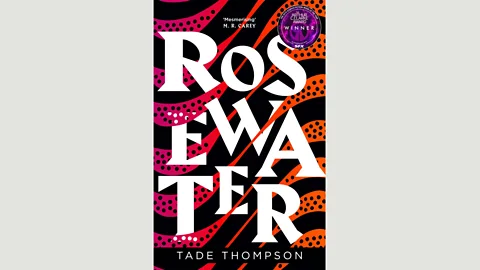 Orbit
OrbitTade Thompson, Rosewater
There has been something of a renaissance in African fiction of late, and especially in speculative fiction. Contemporary Nigerian writing, often coming from a diaspora, is a big part of this. (Chimamanda Ngozi Adichie, Teju Cole, Chigozie Obioma, Ayọ̀bámi Adébáyọ̀ and Ben Okri are some names to conjure with.) Tade Thompson has one foot in the UK and one in Nigeria. Rosewater caused a fuss when it was published because no one had seen anything quite like it before: an alien presence crashes in London but erupts from the earth in Nigeria in the form of a dome, whose strange side effects include resurrecting the dead and giving some people the power of telepathy. But what are the aliens’ intentions? An internecine struggle ensues between various shadowy factions to gain control of the dome.
The book has elements of all kinds of speculative fiction, but it revels in pushing many of the tropes to the limit. Two of the best things about Rosewater are its whip-smart, often darkly comical tone; and the fact that the action takes place entirely in Nigeria (London and the US get a few mentions, and that’s it).
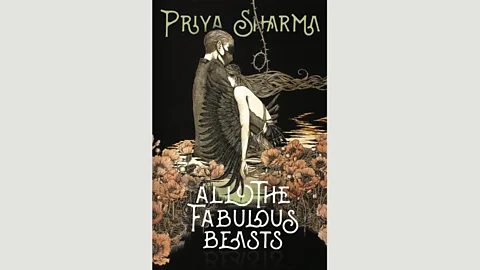 Undertow Publishing
Undertow PublishingTade Thompson writes: “I’d like to suggest All the Fabulous Beasts by Priya Sharma. This is a collection of 16 uncanny tales that range from plain weird to the darkest fantasy. But don’t let the subject matter put you off. Sharma writes with such clarity and verve, sentences with no flab, the precision of a surgeon in service of narrative. In many of the tales there’s a sense of the past in conversation with the present, along with an undercurrent of loss. Each of these touching, eminently human tales will leave you thinking about them long after you’ve put the book down.”
Sharma is based in the UK. Her writing transgresses the horror, sci-fi, and dark fantasy genres. All the Fabulous Beasts won a Shirley Jackson award (‘for outstanding achievement in the literature of horror, the dark fantastic, and psychological suspense’) in 2018.
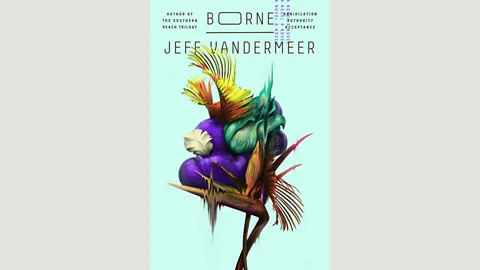 Fourth Estate
Fourth EstateJeff VanderMeer, Borne
In the human imagination, the natural world is traditionally a backdrop: a screen to project our emotions onto; raw material to be assimilated; a challenge to be conquered. VanderMeer’s post-human thinking turns this relationship on its head: whether through mutation or as an unforeseen consequence of humanity’s biotechnological tinkering, nature assumes its rightful place at the centre of the frame. Man is other. VanderMeer’s outlook is often called dystopian, but one might equally say he imagines an ecological utopia where humans’ abusive relationship with nature has ended. Call that sinister if you will.
VanderMeer might be best known, so far, for the Southern Reach trilogy, but another highlight is Borne. It reads like a post-apocalyptic fairytale. A character called Rachel survives – by scavenging biotech – in the ruins of a city, ruled by a giant floating bear called Mord. In Mord’s fur she finds a small, charming creature that is rapidly evolving and takes it home.
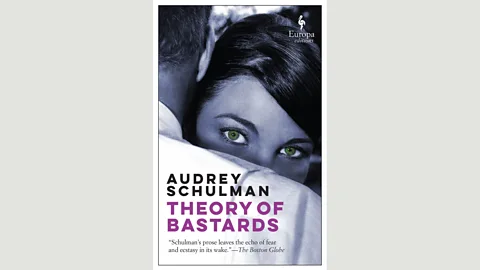 Europa Editions
Europa EditionsJeff VanderMeer writes: “I can’t choose one book. Theory of Bastards by Audrey Schulman sticks in my mind like no other novel of late, as does Michael Cisco’s Animal Money. The former is the clearest-headed view of impending collapse while also dealing in useful and innovative ways with the nonhuman. Animal Money is a Joycean Bosch mind fuck of the highest order, a book that will destroy and reshape you. But so will the Schulman. If you prefer a perfect and rational novel, read Schulman. If you want a drug in book form, read Cisco.”
In a 2015 review of Animal Money, VanderMeer wrote: “After I read the first quarter of [the book], I was so overcome I ran around the outside of the house three times in the dark in my bathrobe shouting ‘Michael Cisco is a… genius!’” Schulman is genuinely off the radar: one reviewer speculates that she suffers from wilfully locating herself in “the gutter of genre”.
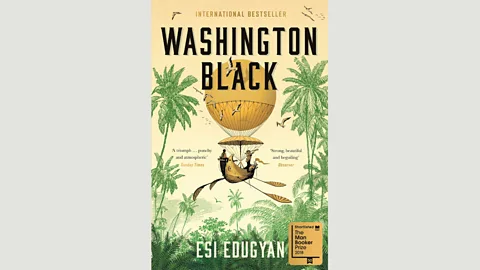 Knopf Publishers
Knopf PublishersEsi Edugyan, Washington Black
Treatments of the slave experience that take an imaginative step to the side, in the process if anything gaining gravity, might constitute a not-genre, particularly if one considers books published recently. By far the most famous of these fantasies must be Toni Morrison’s Beloved (1987). But in recent years we’ve had Paul Beatty’s The Sellout (2015) and Colson Whitehead’s The Underground Railroad (2016). All of these are much-garlanded with attention and awards. Edugyan, a Canadian writer of Ghanaian descent, does her own startling take on escaping the slave experience in Washington Black. Although it was shortlisted for the 2018 Booker Prize, Edugyan deserves even more recognition – and a wider readership.
The arc of Washington Black, briefly, is this: Wash, a young slave on a sadistic Barbadian plantation, is befriended by Titch, a member of the family that owns the plantation. Titch is a scientist and values both Wash’s drawing skills and his intelligence. After an ugly turn of events, the two are forced to flee. They travel the world, from the Arctic to London to north Africa. Eventually Titch and Wash are separated; slavery is outlawed in the West Indies and Titch is ‘free’. But what do freedom, and for that matter friendship, mean to anyone who has been a slave?
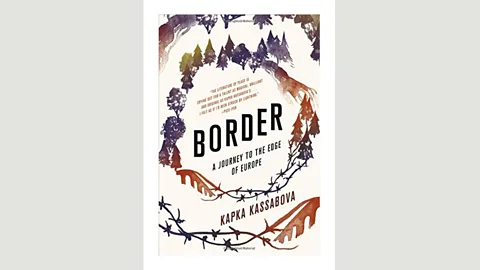 Granta Books
Granta BooksEsi Edugyan writes: “At once a work of history, a travelogue, a collection of myths, and an extended poem, Kapka Kassabova’s Border: A Journey to the Edge of Europe is alive in all its glorious idiosyncrasies. It is a potent rumination on land borders: on their life-defining strictures, as well as their metaphorical resonances. An urgent piece of work, required reading in our isolationist age.”
Kassabova has lived in Bulgaria, New Zealand, and Scotland. She is a poet and memoirist; Borders, which considers the borderzone between Bulgaria, Turkey, and Greece, has elements of travelogue and ethnography. It is a book about hinterlands, as well as cultural and psychological frontiers.
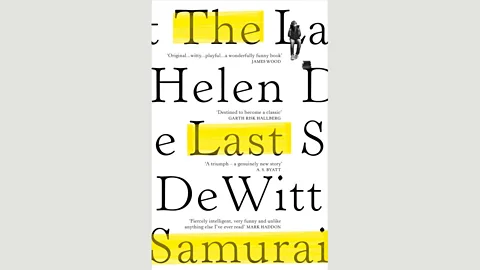 New Directions
New DirectionsHelen DeWitt, The Last Samurai
The Last Samurai (no relation whatsoever to the Tom Cruise film) might be the most important novel you’ve never heard of. In 2018, a straw poll of critics at The Vulture judged it “the best book of the century (for now)”. (It’s difficult to think of any books that have appeared thereafter that might knock it off the top spot.)
The bare bones of the plot are these. A single mother raises a boy of above average intelligence – probably far above average intelligence, but who can say, since one of the book’s themes concerns the inadequacies of public education. Could we all be prodigies if given the right opportunities? The book ranges freely through human knowledge and culture, throwing in tales of intellectual and physical daring along the way, all of it ingeniously anchored on the boy’s favourite film, Kurosawa’s Seven Samurai. This young warrior’s heroic quest will be: to find his father, or failing that, to find someone worthy of being his father. Critics were in raptures about this book because it does something new with the novel form. I would say it also does something new with human intelligence. Hard to top that.
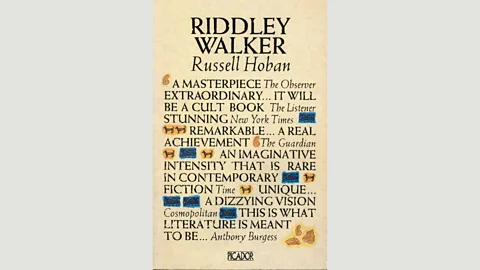 Bloomsbury
BloomsburyHelen DeWitt writes: “In the summer of 1994 I was in despair. It seemed to me that books were predictable and unexciting compared with the astonishing variety and inventiveness of art – why bother with a novel? Mooching glumly around a museum bookshop, I came across a book plastered with raves by the likes of Anthony Burgess. I opened to the first page and read: ‘On my naming day when I come 12 I gone front spear and kilt a wyld boar he parbly ben the las wyld pig on the Bundel Downs…’ It was like nothing I’d ever seen. Russell Hoban’s Riddley Walker is set on a post-apocalyptic post-British landmass thousands of years after a nuclear holocaust. All scientific knowledge has been lost, but its traces linger on in a loss-marked language which repurposes the mangled to mythology. The book had come out in 1980 to acclaim; I’d never heard of it. And yet this extraordinary book seemed to me to be the equal of The Waste Land; it was embarrassing to have to recommend it to people, as if one were to go about saying ‘I’ve just discovered this amazing poem by someone called TS Eliot.’”
Hoban was an American who lived in Britain. He wrote across genres: fiction, the fantastic, poetry, children’s literature. Anthony Burgess said of Riddley Walker: “This is what literature was meant to be.” Max Porter (see below) has called it a “stone-cold classic”.
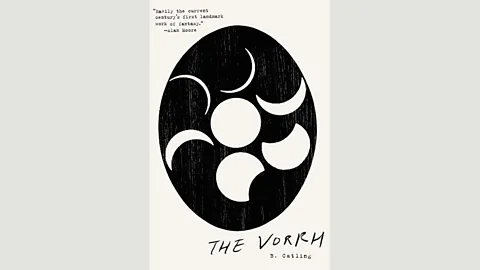 Penguin Random House
Penguin Random HouseBrian Catling, The Vorrh
If the word ‘genius’ has any meaning left in it, in the era of digitally pumped-up marketing, then Brian Catling is a genius. He is an artist, teacher, poet, and writer, each of which he does with a rare, precious originality. His trilogy of books, beginning with The Vorrh, has attracted the iration of a pantheon of rebel outsiders: Alan Moore, Philip Pullman, Jeff VanderMeer, Terry Gilliam.
Nothing you have encountered before (perhaps the uncanny world of William Blake) could prepare you for The Vorrh. One can see it as a kind of epic fantasy, but whereas in Tolkien magic is disappearing, here it is western civilisation itself that is ebbing away. Looming all around a colonial city in Africa is a sentient forest inhabited by spirits and monsters, some of whom might be fallen angels. A man’s lover dies and transforms into a living bow, which he takes on a quest into the forest; while elsewhere a young cyclops is raised by robots. Historical figures such as Raymond Roussel and Eadweard Muybridge both inform the book and make actual appearances in it. This is Lewis Carroll for intelligent grown-ups.
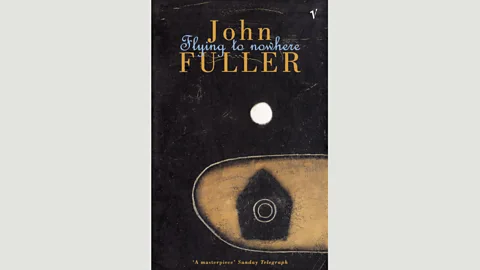 Vintage Digital
Vintage DigitalBrian Catling writes: “Flying to Nowhere by the poet John Fuller is not an overlooked book, it’s just a bit forgotten. It was a significant influence to me and a kind of ideal model when I started writing The Vorrh. Not just its magnificent, mysterious plot and language, but also its size. It is a literary Tardis. Only 112 elegant pages that expands into biblical proportions. It was one of those rare books that makes you stamp on the brakes midway because it is going too fast, its end becoming too imminent. I failed miserably to match its enigmatic precision, but was brilliantly contaminated by its gigantic atmosphere.”
Fuller is an English poet. At the age of 23 he was awarded the Newdigate Prize for his poem, A Dialogue between Caliban and Ariel.
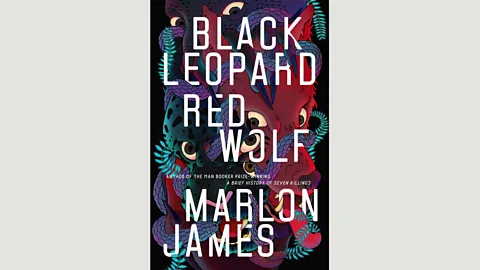 Penguin Random House
Penguin Random HouseMarlon James, Black Leopard, Red Wolf
The Jamaican writer Marlon James is best-known for his novel A Brief History of Seven Killings, which won the Booker Prize in 2015. He seems to have used the cultural capital accrued from that to strike out in an audacious direction with his next book, Black Leopard, Red Wolf, the first volume of a projected Dark Star Trilogy. Brief History was sort of a polyphonic historical novel, built around the attempted assassination of Bob Marley. Black Leopard was to be his “African Game of Thrones” (in his words), and it draws freely on the history and folklore of Africa. It’s a shock to the system – and it should have had as wide a reach as his earlier novel.
The story of Black Leopard is dense with magic and polymorphousness, sex and violence; the anti-hero is queer in more ways than one. James says that he grew up reading a diet of whatever “crap” he could find, including comic books, and it shows in the gleeful levels of poppy supernaturalism on display here. You will either love or hate this book. Michiko Kakutani, the august and famously severe literary critic of the New York Times, loved it, whereas The Guardian hated it.
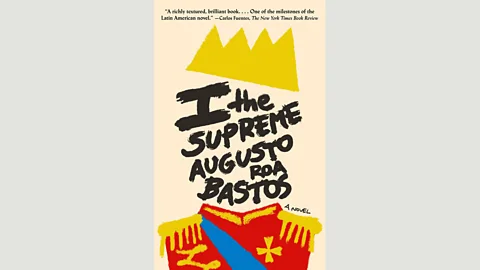 Penguin Random House
Penguin Random HouseMarlon James writes: “Back in the early 1970s, Gabriel Garcia Marquez, Alejo Carpentier, and Augusto Roa Bastos all made a pact: They would each write a novel about a Dictator. Marquez gave us The Autumn of the Patriarch and Carpentier, Reasons of State. Both are brilliant, but both spin narratives full of satire, poetry, and the grotesque. Not Bastos. In I the Supreme (Yo el supremo), the satire, poetry, and grotesque are all there, but he dared to take on an actual dictator. A dead one, yes, but still a daring move in the tyrant-swamped 1970s, and he paid for it with a second exile. It’s the least known and most ‘challenging’ of the three (which is saying something) but it’s also gloriously brash, and nightmarishly addictive, like a fever dream that drives you slightly mad.”
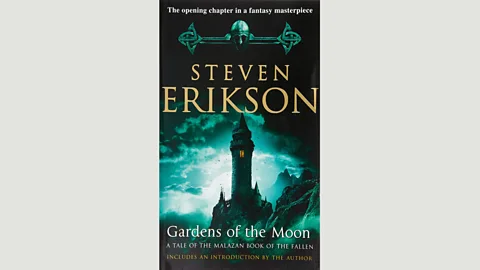 Transworld
TransworldSteven Erikson, Gardens of the Moon
This book is included in the list as a bit of a wild card. If you’re tired of George RR Martin, or tired of waiting for his next book, Erikson writes a kind of epic fantasy for grown-ups with well-developed attention spans. His writing is heavily influenced by a background in anthropology and archaeology. His books are denser than Martin’s, also more sweeping, darker, more exhilarating, and more rewarding. Erikson’s writing has been called ‘Homeric’, but here the gods not only meddle in mortal affairs, the mortals have the mastery of sorcery to meddle back. The bad news: it may take you a while to work out what’s going on. The good news: if you persist and are bitten by the Erikson bug, there are nine more books in the series, each of them jaw-dropping.
 Ace Science Fiction
Ace Science FictionSteven Erikson writes: “A writer who comes immediately to mind isn’t necessarily unsuccessful or unnoticed, but deserves a lot more cred than he gets, and that is Tim Powers. Novels cited could include The Drawing of the Dark, Last Call, The Stress of Her Regard, and The Anubis Gates.”
Like Erikson, Powers is noted for the density of his vision. The Anubis Gates (1983) might be the place to start: it won the Philip K Dick award.
 Faber and Faber
Faber and FaberMax Porter, Lanny
Porter isn’t really off the radar; but I don’t dare leave him off this list because of his sheer originality. He’s my poster boy of off-genre writing. Also, he’s a writer who inspires fervid devotion: he needs to be talked about.
Like many of the writers in this list, Porter has invented his own medium. It has strong elements of the fantastical, poetic, horrific, and mythic, and it is solidly rooted in English time and space. The natural world plays a big role in his imagination (he once said, in a BBC interview, that he loves licking trees and tasting them). He also loves listening to life’s many voices, and he turns words over and over in his mind, as if they were pebbles in his hands. Lanny is what you’d get if the person who composed Beowulf were alive today, living in south London, and still working.
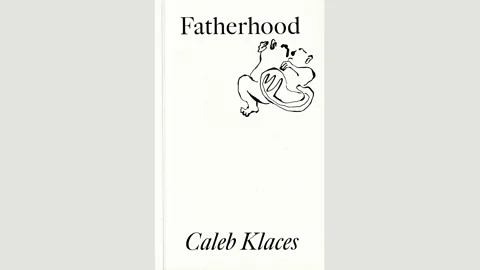 Prototype Publishing
Prototype PublishingMax Porter writes: “Fatherhood, by Caleb Klaces, is a novel and a poem and an essay, but somehow none of these things in any conventional sense. It’s a startling moulding or weird-melting of form to fit the sleepless agonised lovely subject. It’s funny and confusing, painful and embarrassing. It’s intellectually and emotionally daring. I think it’s brilliant.”
Klaces is an English poet who, with Fatherhood (2019), has veered into something like fiction (autobiography? meditations? prose poetry?). When it came out, the book caused a stir for the same reasons that Porter’s do: its shape was marvellously difficult to pin down.
If you would like to comment on this story or anything else you have seen on BBC Culture, head over to our Facebook page or message us on Twitter.
And if you liked this story, sign up for the weekly bbc.com features newsletter, called The Essential List. A handpicked selection of stories from BBC Future, Culture, Worklife and Travel, delivered to your inbox every Friday.
